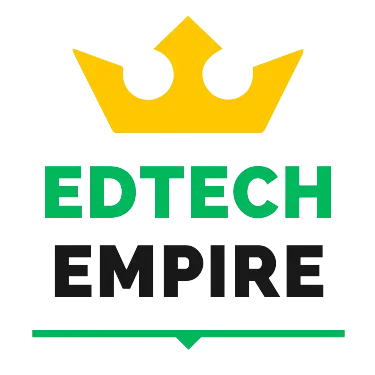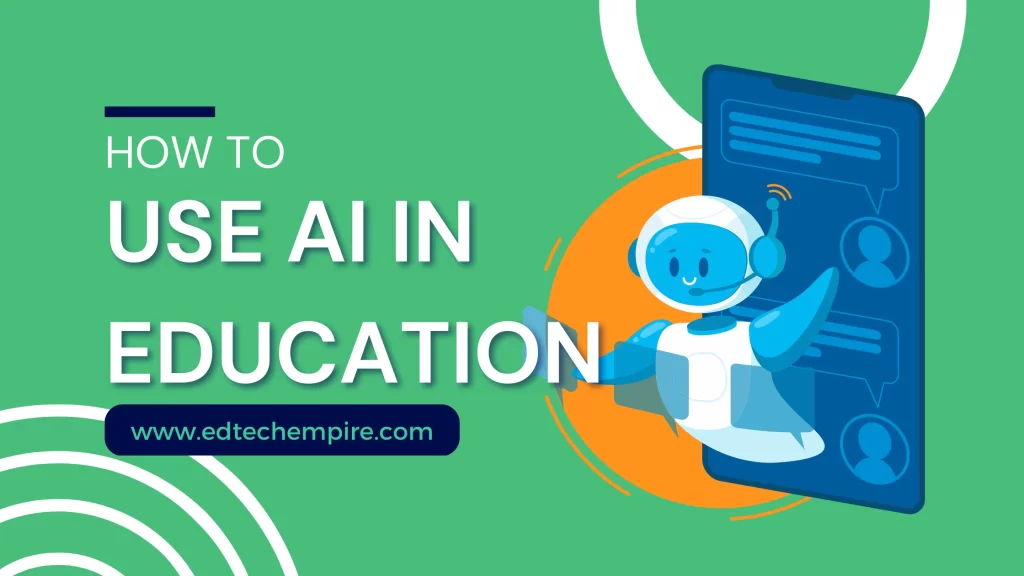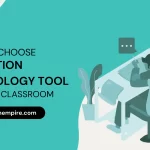![]()
AI has the ability to completely change the way that education is provided. AI may save teachers time, enhance student results, and advance equity in a variety of educational settings, from personalized learning and adaptive tutoring systems to automatic grading and educational data mining. A detailed plan must be made and ethical, legal, and societal concerns must be taken into account before adopting AI in education. The benefits and difficulties of using AI in education, as well as the best strategies for doing so, will all be discussed in this blog.
What is AI in Education?
Artificial intelligence (AI) in education refers to the application of AI tools, such as machine learning and natural language processing, to the teaching and learning process. Among the applications of AI in education are:
- Personalized Learning: By taking into account each student’s unique needs, interests, and skills, AI may be used to design learning experiences that are tailored to them. For instance, a learning platform driven by AI might employ machine learning algorithms to monitor a student’s development, pinpoint their strengths and weaknesses, and modify the course’s content and level of difficulty as necessary.
- Adaptive Tutoring: AI can be used to give students immediate feedback and assistance as they work on tasks and assignments. This is known as adaptive tutoring. A tutor assisted by artificial intelligence might, for instance, employ natural language processing to comprehend a student’s written or spoken explanations and offer pertinent feedback.
- Automatic Grading: AI can be used to automatically grade homework, tests, and examinations, freeing teachers to concentrate on higher-level duties like giving feedback and organizing discussions.
- Educational Data Mining: AI may be used to find patterns and trends in massive volumes of data gathered from educational systems, such as student performance data and instructor feedback. This information can assist educators in making informed decisions about how to enhance student outcomes.
Benefits of AI in Education
There are several potential benefits to using AI in education:
- Efficiency: AI can help instructors save time by automating operations like grading and data analysis. This allows teachers to focus on higher-level duties like providing comments and encouraging dialogues.
- Improved Student Outcomes: By delivering individualized information and support, personalized learning and adaptive tutoring systems can help students learn more successfully. Educational data mining can assist educators in identifying patterns and trends that can help them improve their teaching practices.
- Equity: By giving all students access to tailored learning and support, AI has the potential to create equity in education. Students in impoverished or underfunded schools, for example, may not have access to the same resources as students in more affluent institutions, but AI-powered learning platforms may deliver tailored content and support to all students, regardless of location or socioeconomic status.
- Cost-effectiveness: By automating tasks and lowering the need for human labor, AI can help reduce the cost of education. This is especially important in nations where qualified teachers are in short supply.
Challenges to Consider
While AI has the potential to improve education, there are some issues to consider before incorporating AI in education:
- Ethical and legal concerns: AI in education poses a number of ethical and legal concerns, including privacy, bias, and accountability. For example, using AI to personalize learning and adapt to student needs requires the collection and analysis of data on students, which poses privacy concerns. Furthermore, if not carefully developed and executed, AI systems might reinforce and amplify existing biases. It is critical for educators to be aware of these concerns and to take action to address them.
- Social and cultural difficulties: Artificial intelligence in education may generate social and cultural issues, such as the influence on jobs and the possibility of unequal access to educational resources. For example, if AI is utilized to automate some tasks, some instructors may lose their jobs. Furthermore, AI-powered learning platforms may be ineffective for some student demographics if they are not designed and implemented in a culturally sensitive manner. It is critical that educators are aware of these concerns and take action to address them.
- Limited Adoption: Another issue with AI in education is a lack of adoption among instructors and learners. Some instructors may be hesitant to employ AI technology due to a lack of understanding or worries about their efficacy. Similarly, students may be hesitant to adopt AI-powered learning systems if they are not user-friendly or interesting. It is critical for educators to educate themselves on AI and collaborate with students to guarantee that AI technologies are accepted and used successfully.
Best Practices for Implementing AI
There are a few best practices that educators may follow to guarantee that AI is used effectively in education:
- Starting small: Rather than attempting to use AI on a broad scale all at once, a modest pilot project may be more beneficial. This can assist instructors in gaining experience with AI and identifying any possible concerns before using it more broadly.
- Collaborate with professionals: To guarantee that AI technologies are deployed efficiently, it is critical to collaborate with specialists in AI and education. This might involve working with researchers, speaking with instructors who have expertise with AI, and soliciting student input.
- Evaluate ethical and legal consequences: As previously said, it is critical to consider the ethical and legal implications of utilizing AI in education. This includes concerns about personal privacy, prejudice, and responsibility. Educators should be open about their use of AI and collaborate with specialists to solve these concerns.
- Make AI technologies accessible and inclusive: It is critical to make AI technologies accessible and inclusive to all students. This involves developing systems that are accessible to students with disabilities and offering assistance to students who are having difficulty with technology.
How non technical teachers can utilize AI in Education?
You may be asking, as a non-technical teacher, how you may use AI in your classroom without a degree in computer science. Don’t be concerned; there are several methods to apply AI in teaching without becoming a technical specialist. Here are some suggestions to get you started:
- Utilize AI-powered learning platforms: Many learning platforms use AI to tailor students’ learning experiences. Khan Academy and Duolingo, for example, are both famous platforms that employ AI to generate personalized learning routes for students based on their needs and talents. You may utilize these platforms to enhance your lecture or give them as homework as a teacher.
- Use AI-powered tools for grading and feedback: AI may be used to automatically evaluate assignments, quizzes, and examinations, allowing teachers to focus on higher-level duties like providing comments and organizing conversations. For example, you may evaluate assignments and offer comments to students using AI-powered platforms such as Gradescope or Knewton.
- Use AI-powered educational data mining: AI may be used to find patterns and trends in massive volumes of data gathered from educational systems, such as student performance data and instructor feedback. As a teacher, you may utilize this data to enhance student outcomes by informing your teaching methods and making informed decisions.
- Explore AI-powered resources for professional development: There are several resources accessible to non-technical instructors who want to learn more about AI in education. For example, you may learn from professionals and share your experiences with other instructors by attending seminars or webinars, reading articles or blog entries, or joining online communities or forums.
Non-technical instructors may profit from the numerous advantages that AI has to offer in education by employing these and other AI-powered tools.
Conclusion
By customizing learning, offering adaptive tutoring, automating grading, and mining educational data, AI has the potential to transform the area of education. While there are hurdles to consider, such as ethical and legal concerns, limited adoption, and social and cultural issues, educators may also follow best practices to guarantee that AI is utilized effectively in education. Educators may take advantage of the numerous benefits that AI has to offer and enhance student results by properly designing and applying AI in education. If you like this blog post or are enthusiastic about learning more about how AI can be used in education, check out our blog post on ChatGPT in Education.



